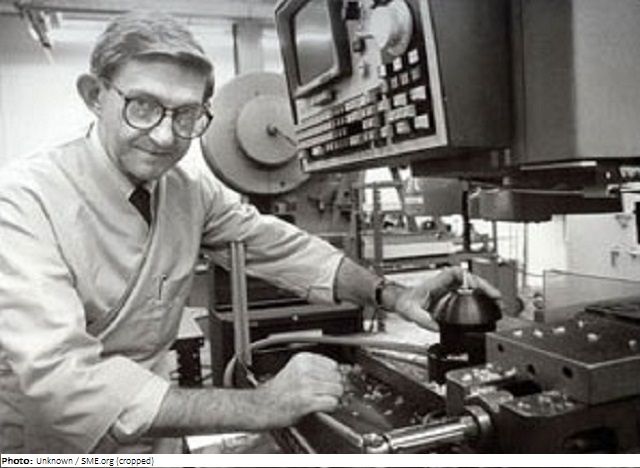
| Roles | Competed in Olympic Games |
|---|---|
| Sex | Male |
| Full name | Herbert Bernhardt•Voelcker, Jr. |
| Used name | Herbert•Voelcker |
| Born | 7 January 1930 in Tonawanda, New York (USA) |
| Died | 23 January 2020 (aged 90 years 16 days) in Ithaca, New York (USA) |
| Measurements | 181 cm / 77 kg |
| Affiliations | US Army, (USA) |
| NOC |  United States United States |
Herbert Voelcker studied mechanical engineering at MIT (Massachusetts Institute of Technology), and then earned graduate degrees at the University of Rochester, where he studied electrical engineering, and then obtaining a PhD from Cornell. While at MIT Voelcker shot on the rifle team and rowed stroke with the varsity lightweight crew in 1948-50. He was collegiate individual rifle champion in 1950. After graduating in 1951, Voelcker served in the US Army as a first lieutenant and a signal officer with the 82nd Airborne Division, and was on the Army team that won the 1952 national rifle team championship. Voelcker was in the Army for seven years, which paid for his graduate study. In 1958 he earned a Fulbright Scholarship and studied electrical engineering at Imperial College of Science in London. Voelcker won the 1954 Leech Cup, for high-power rifle shooting. He also worked as a coach and unpaid advisor to the 1953-54 MIT varsity rifle team.
Voelcker’s scientific research laid the basis for the mathematical basis of 3-D modelling, and led directly to the use of CAD/CAM engineering. His wide-ranging career included research into radio propagation, aural perception, and bandwidth compression in the 1950s; modulation theory and digital signal processing in the 1960s; computer science/solid modeling in the 1970s; machine tools and NC programming in the 1980s; and parallel computation, dimensional tolerancing, and mechanical design in the 1990s. He spent over 20 years as a professor of mechanical and aerospace engineering, and served as the Charles Lake Professor of Mechanical Engineering, Emeritus, at Cornell’s Sibley School of Mechanical and Aerospace Engineering.
Voelcker received many honors for his scientific research. He was a Life Fellow of both the Institute for Electrical and Electronics Engineers (IEEE) and of the American Society of Mechanical Engineers (ASME). He received the inaugural Prix Bezier in 2007, the senior prize of the International Solid Modeling Society, for fundamental contributions to solid modeling. In 2009 he was named a “Master of Manufacturing” by Manufacturing Engineering, the magazine of the Society of Manufacturing Engineers (SME), and in 2014 he received a Lifetime Achievement Award for his work in industrial automation from ASME’s Computers in Information in Engineering Division.
| Games | Discipline (Sport) / Event | NOC / Team | Pos | Medal | As | |
|---|---|---|---|---|---|---|
| 1956 Summer Olympics | Shooting |  USA USA |
Herbert Voelcker | |||
| Free Rifle, Three Positions, 300 metres, Men (Olympic) | 10 |